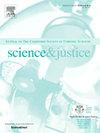高人一等?尸检在法医学本科教育中的价值
IF 1.9
4区 医学
Q2 MEDICINE, LEGAL
引用次数: 0
摘要
很少有人有机会在太平间环境中亲眼目睹尸体解剖。这些场所通常是为医疗专业人员(包括正在接受培训的医生)保留的。不过,就读其他课程的学生将来可能会从事与逝者打交道的职业。例如,法医学毕业生可能会进入需要对死者进行复原、取样、分析和/或鉴定的专业岗位。只有在少数情况下,法医学学生才有机会亲自参加验尸。在本文中,我们从学术界(KS)和学生(FS)的角度探讨了将尸检纳入法医学本科学位课程的价值。作为研究的一部分,我们从斯塔福德郡大学参加过尸检的学生那里获得了补充反馈。这项研究表明,虽然在安排尸检参观时可能会遇到后勤方面的挑战,但学生们认为这种经历非常宝贵,可以让他们提高自己的个人和专业实践能力,并了解从业人员使用的最新方法和流程。可以说,这些参观是非常宝贵的,因为它们促进了观察学习,特别是理论知识的实际应用和对验尸及鉴定过程的理解,这反过来又提高了学生的就业能力。本文章由计算机程序翻译,如有差异,请以英文原文为准。
A cut above the rest? The value of post-mortem examinations in undergraduate forensic science education
Very few people have the opportunity to witness a post-mortem first-hand in a mortuary environment. These spaces are typically reserved for those in the medical profession, including doctors in training. However, students enrolled on other programmes may go on to future careers that involve interacting with deceased individuals. Forensic Science graduates, for example, may enter professional roles that require the recovery, sampling, analysis and/or identification of the dead. In only a small number of cases will forensic students have had the opportunity to attend a post-mortem in person. In this article, we explore the value of incorporating post-mortem visits on undergraduate forensic science degrees from an academic (KS) and a student (FS) perspective. As part of this research, we obtained supplementary feedback from students who had also attended a post-mortem as part of their undergraduate degree at the University of Staffordshire. This research shows that while there can be logistical challenges when arranging post-mortem visits, students find the experience to be incredibly valuable, allowing them to improve their own personal and professional practice, and learn about up-to-date methods and processes used by practitioners. It could be argued that these visits are invaluable as they facilitate observational learning, especially the practical application of theoretical knowledge and understanding of post-mortems and the identification process, which in turn improves the employability of students.
求助全文
通过发布文献求助,成功后即可免费获取论文全文。
去求助
来源期刊

Science & Justice
医学-病理学
CiteScore
4.20
自引率
15.80%
发文量
98
审稿时长
81 days
期刊介绍:
Science & Justice provides a forum to promote communication and publication of original articles, reviews and correspondence on subjects that spark debates within the Forensic Science Community and the criminal justice sector. The journal provides a medium whereby all aspects of applying science to legal proceedings can be debated and progressed. Science & Justice is published six times a year, and will be of interest primarily to practising forensic scientists and their colleagues in related fields. It is chiefly concerned with the publication of formal scientific papers, in keeping with its international learned status, but will not accept any article describing experimentation on animals which does not meet strict ethical standards.
Promote communication and informed debate within the Forensic Science Community and the criminal justice sector.
To promote the publication of learned and original research findings from all areas of the forensic sciences and by so doing to advance the profession.
To promote the publication of case based material by way of case reviews.
To promote the publication of conference proceedings which are of interest to the forensic science community.
To provide a medium whereby all aspects of applying science to legal proceedings can be debated and progressed.
To appeal to all those with an interest in the forensic sciences.
 求助内容:
求助内容: 应助结果提醒方式:
应助结果提醒方式:


